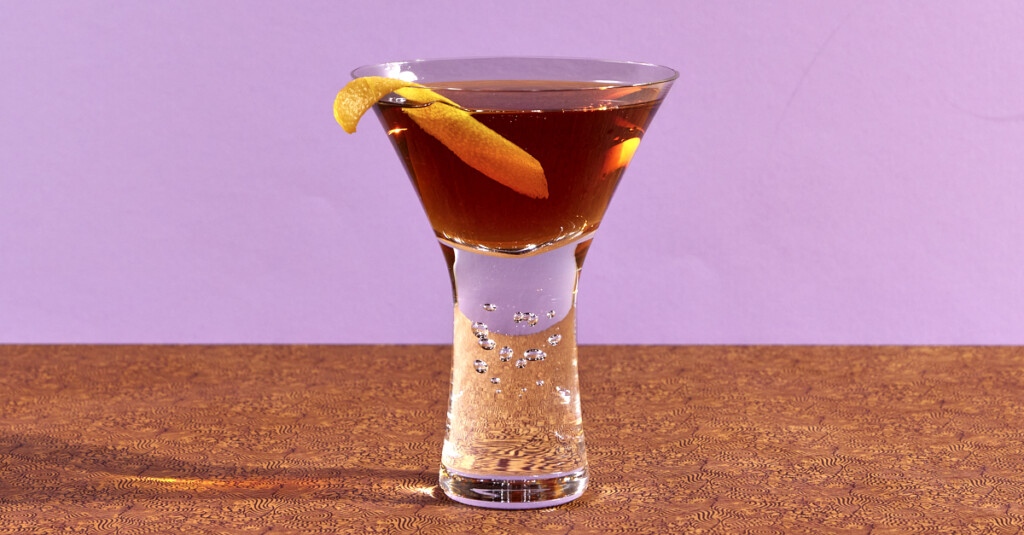The Story Behind The Adonis
In the realm of stirred drinks, few rank as sessionable as the Adonis, a split-base aperitif composed of fino sherry, sweet vermouth, and a few dashes of orange bitters.
Like most pre-Prohibition classic cocktails, the origins of the Adonis are anything but straightforward. The first-ever documentation of this cocktail appears in the “Pearls from Billy, the Bartender” column in New York’s Sun newspaper in March of 1887. Allegedly, three well-dressed men walked into the bar — which isn’t identified — and ordered three Adonis cocktails. “I gave them what I always have known as a turf club cocktail, and it suited,” Billy claimed. “The first principle of good bartending is to know how to make everything on earth in the drink line, no matter whether you have ever heard of it before or not.” Unfortunately, the article doesn’t indulge in the drink’s spec, but it does refer to it as having a “new-fangled name,” suggesting that the cocktail was not, in fact, invented by Billy.
The first time the recipe was published with the official “Adonis” title was in Jacques Straub’s 1913 book “Straub’s Manual of Mixed Drinks,” with a spec of two parts sweet vermouth, one part sherry, and two dashes of bitters. A little more light was shed with the 1931 publication of Albert Stevens Crockett’s “Old Waldorf Bar Days,” in which he explains that the drink got its name from a Broadway musical of the same name.
Written by playwright William Gill, “Adonis” was an 1884 burlesque musical comedy of sorts in which a statue of Adonis — a Greek mythological figure known as being the perfection of male beauty — comes to life, only to find human life so awful that he chooses to turn back to stone after mocking mortal ways. It was a smash hit, running for more than 500 shows, making it the first Broadway stage performance to do so. After the play’s debut in Chicago, it moved to Broadway’s Bijou Theatre after a few short months.
The Adonis cocktail has seen a number of recipe tweaks, like Harry Craddock’s sherry-forward version published in the famous “Savoy Cocktail Book” of 1930. However, the template that stood the test of time is Crockett’s, which calls for the equal-parts spec outlined below.
Like an Americano to a Negroni, many frame the Adonis as a low-ABV Manhattan, though rye whiskey is a far cry from sherry. Some say it’s like a sweeter Bamboo, but either way, the Adonis is the Adonis. This fortified wine-based drink is silken, ethereal, and less austere than most of its stirred cocktail cohorts. For the sherry, this one calls for a fino or manzanilla expression, which are both on the lighter, drier, less oxidized end of the spectrum. Manzanilla sherries tend to have high salinity, but both are dry, and typically carry notes of almonds and tart berries. On the vermouth front, many recipes specifically call for an Italian expression, like Carpano Antica, but reach for a French example like Dolin if you’re looking for something more fruit-forward. Garnish-wise, an orange twist is traditional, but lemon twists, olives, and even caper berries are all fair game, leaving plenty of room for bartenders to riff to their liking.



